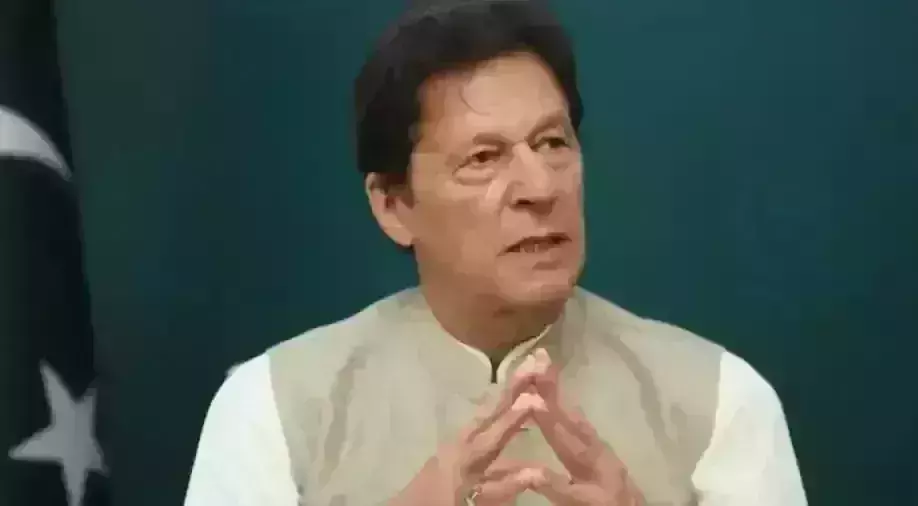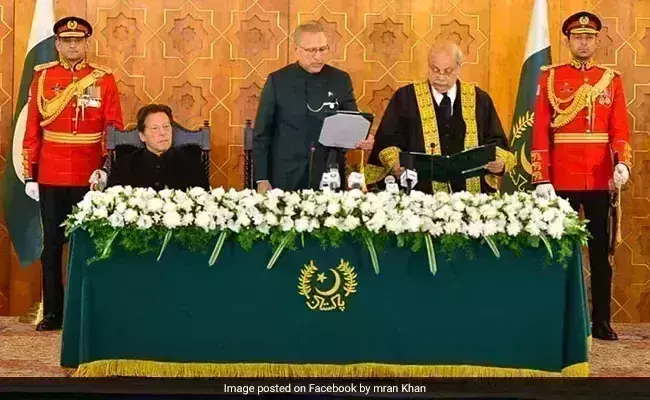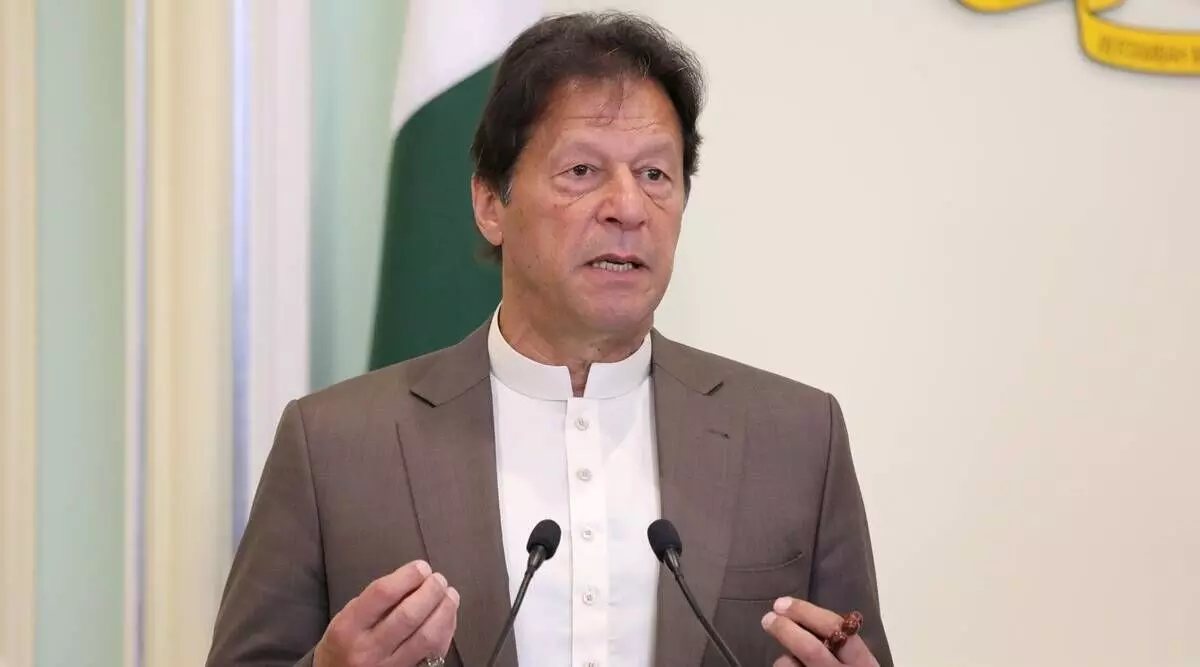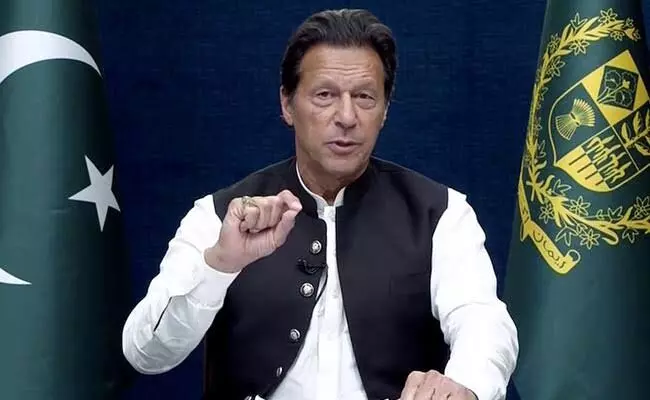
Imran's desperate games
text_fieldsWhile caught in a deep political crisis, Pakistani Prime Minister Imran Khan's claim was that he would fight without giving up until his last. Outwitting an Opposition which had ensured it had sufficient numbers to make Imran's head roll, the Pakistani prime minister on Sunday "survived" the no-confidence motion. The former cricketer hit a wining stroke to beat the opposition who had even picked a replacement for the PM's job once the no-confidence motion is passed. The lifespan of this victory is to be decided by the Supreme Court. It also remains to be seen what cost the country will pay for the desperate game the regime played in its enthusiasm to deal with its internal foes. For now Imran stands victorious and stubborn that he will not kneel before the opposition. He virtually pulled a fast one on the Opposition with his decision to dissolve the National Assembly and seek a fresh mandate. His question why democrats are so reluctant to go to the people's court for support is intended to silence the opposition. Opponents are all in wait for the Supreme Court's 'reasonable' intervention, knowing that a victorious Imran cannot be tamed.
The Pakistan Democratic Movement, a nine-member opposition coalition, issued a no-confidence motion on March 8. In normal course, the ruling side would create fissures in the opposition and then survive the no-trust motion. In 1989 Benazir Bhutto and in 2006 Shaukat Aziz had overcome the no-confidence motion. But this time round, Imran's main threat was the dissidents in the ruling side. About two dozen people jumped ship from the ruling party. The move to approach the court to impose lifelong disqualification on the turncoats was abandoned in the face of increasing risk of failure. Thereafter, Imran's strategy was devised to browbeat the opposition. Then came the allegation of conspiracy by the US and the European Union unhappy with his affinity with Russia and China What Imran construed as foreign interference and conspiracy was a cable message from US Assistant Secretary of State for South Central Asian Affairs Donald Lu to the Pak diplomat warning that there would be unrest if Imran survives the no-trust motion. Although first it was read as a mere political allegation, later it became serious. The National Security Council (NSC), the country's top civilian-military body, met on April 1 and decided to give a fitting reply to the US at diplomatic level. Earlier, political observers had remarked that this was just an informal conversation between a US official and a diplomat and that there was nothing in it that could be stretched to a conspiracy. However, at the parliament session when the Deputy Speaker informed the house about the no-confidence motion, Information & Broadcasting Minister Fawad Chaudhry jumped in with this theory. He argued that under Article 5 of the Pakistani Constitution, allegiance to the nation should be an essential quality of every citizen, that a foreign conspiracy was being hatched to oust the government and that the resolution was part of it. He also demanded that the constitutional validity of the resolution be clarified. Taking this at face value, the Deputy Speaker lost no time in rejecting the resolution. The Prime Minister immediately met the President and recommended the dissolution of the National Assembly. And the President instantly accepted it and issued the order.
Four years after the Imran government came to power with a handful of promises - which include one crore jobs, half a crore housing and holding inflation under control - the record is of 7.80 crore people in the country living below the poverty line. Imran was no different from his predecessors in covering up the failings in governance by holding up external threats. That got extended to outright anti-Americanism and conspiracy theories surrounding it. By accusing the opposition of being a party to the conspiracy, Imran has put a label of total treason on his political opponents. In this situation, there are strong allegations that he ridiculed Parliament and its members in such a fashion by which he has tarnished the image of the nation to protect his own position. By blowing up an informal diplomatic cable message, he violated the basic decency in international diplomacy. They are also raising the concern about how far a political leadership, which has eroded the credibility of bilateral relations, can succeed in foreign policy relations in future. But now that seems to none of Imran Khan's concerns. He has to win the duel. The old Pakistan captain is in vintage aggressive mood at the cricket ground who has to hit the opponent's stumps in the limited overs of the last over. However, now it is for the court to decide whether it is Imran or the Opposition who will be pinned down in the political mat.

























